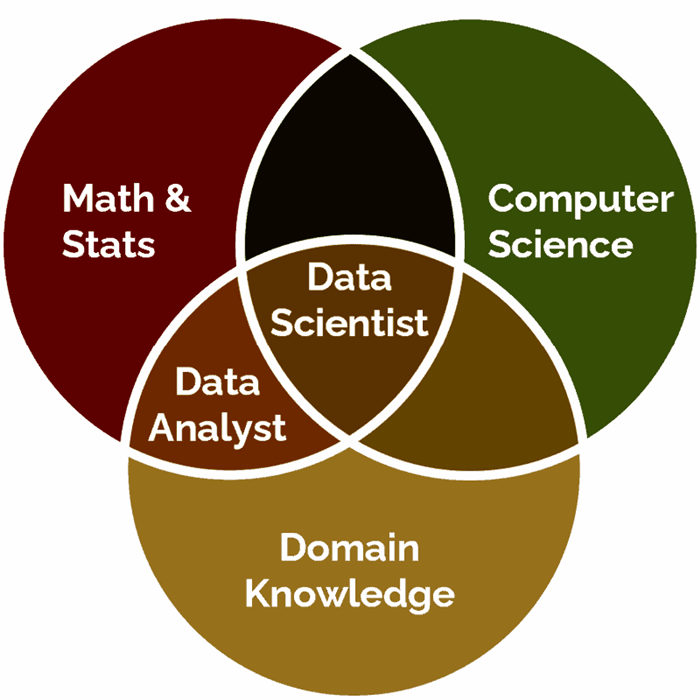In this article, we will be covering the nitty-gritty of a typical data science syllabus, looking into the main subjects, ideas, and practical uses taught all throughout the program. In the recent few years, data science has become a crucial constituent part of several industries such as technology and finance, healthcare and many more. Recognizing the importance of data-driven decision making, organizations are in need of skilled data scientists. Therefore, the increased demand has led to the development of academic programs specialized to meet this demand. Through a data science degree program the students gain the required knowledge and skills to be competitive in the fast growing industry.
Introduction to Data Science Syllabus
The first step in data science is typically an introductory course designed to provide the student with an introductory grasp of the field. Topics covered in this course may include:
– Data science is an overview of all the science disciplines that use data and statistics to make sense out of the information and use it to solve problems.
– Introduction to programming languages that are used in data science (e.g. Python, R)
– Foundations of data manipulation, analysis, and visualization
– Ethical considerations and good practices in Data Science.

Mathematics and Statistics for Data Science
Any data scientist needs a good foundation in mathematics and statistics. Courses in this category often cover the following topics:
– Linear algebra and operations on matrices.
– Probability theory and its applications of it.
– Statistical inference and hypothesis testing
– Regression analysis and predictive modeling are two of the most powerful tools in data analytics.

Data Wrangling and Preprocessing
In the raw form, data is usually in a messy and unstructured form. Data wrangling and preprocessing courses cover methods for cleaning, transforming, and preparing data before analysis.Key concepts may include:
– Data cleaning and outlier detection tasks.
– Handling missing data
– Feature engineering and selection
– Text parsing and natural language processing (NLP)
Machine Learning and Predictive Modeling
Machine learning is the core of data science with the algorithms having the capacity to learn from data and make predictions or take decisions. Courses in this domain typically cover a wide range of machine learning techniques, including: Courses in this domain typically cover a wide range of machine learning techniques, including:
– These algorithms are known as supervised learning algorithms (e.g. linear regression, decision trees, support vector machines).
– Unsupervised learning algorithms like clustering and dimensionality reduction are examples.
– Evaluation and validation of the model.
– Ensemble methods and model selection approach.
Big Data Technologies
Given the fact that we live in a data-driven era, the capability of utilizing huge amounts of data is essential today. The courses in big data technologies give an introduction to students regarding the utilization of the tools and frameworks that are designed to handle big data effectively.Topics may include:
– The basics of distributed computing and parallel processing.
– Hadoop and MapReduce ecosystem.
– Apache Spark for Big Data processing
– NoSQL databases and distributed file systems.
Data Visualization and Communication
Data scientists need to master the skill of data communication as it is a critical skill for data scientists. Courses in data visualization and communication focus on: Courses in data visualization and communication focus on:
– Principles of data visualization and graphic perception
– Libraries and tool for generating the interactive visualizations (Matplotlib, ggplot2, D3.js)
– Telling stories with data and using the communication strategies effectively.
– Framework of design principles that go into making dashboards and reports visually attractive.

Capstone Project
The capstone project constitutes the final stage of the Data Science Degree Syllabus, where students demonstrate their knowledge and skills by solving real-life problems. Working individually or in teams, students typically:Working individually or in teams, students typically:
– Determine a demonstration difficult problem or question with real-world relevance
– Collect, cleanse, and perform analysis on relevant data.
– Use appropriate machine learning methods which can either be used to derive insights or build predictive models.
– Communicate their results in the form of presentations or reports.
Elective Courses and Specializations
In a lot of degree programs of Data Science Syllabus – There are elective courses or specializations available that let students be flexible with their learning according to their specific interests or career objectives.These may include:
– Deep learning and neural networks
– Time series analysis and forecasting
– Spatial data analysis and geospatial analytics.
– Health analytics or financial analytics
– Cyber security and data privacy
The syllabus of data science degree program is designed to provide students with a holistic understanding of the theoretical basics, practical knowledge, and real-life applications of data science. Graduates of these programs who are adept in mathematics, statistics, programming, machine learning, and big data technologies master the skills needed to address data complexity and make data-informed decisions in many sectors. The field will advance as data science degree programs will adapt to incorporate emerging technologies and methods to keep the students abreast of the trending developments in this dynamic and exciting field.




